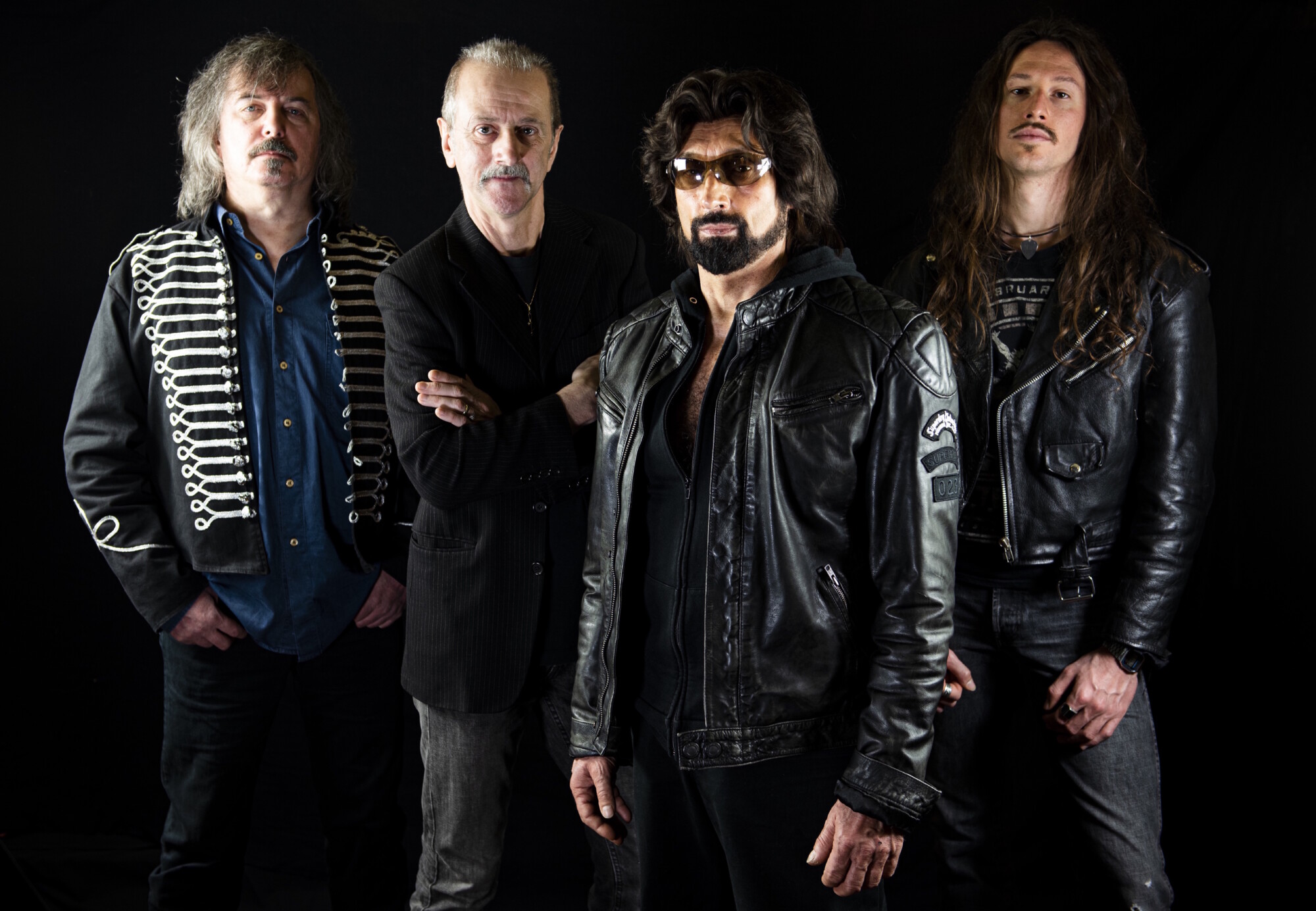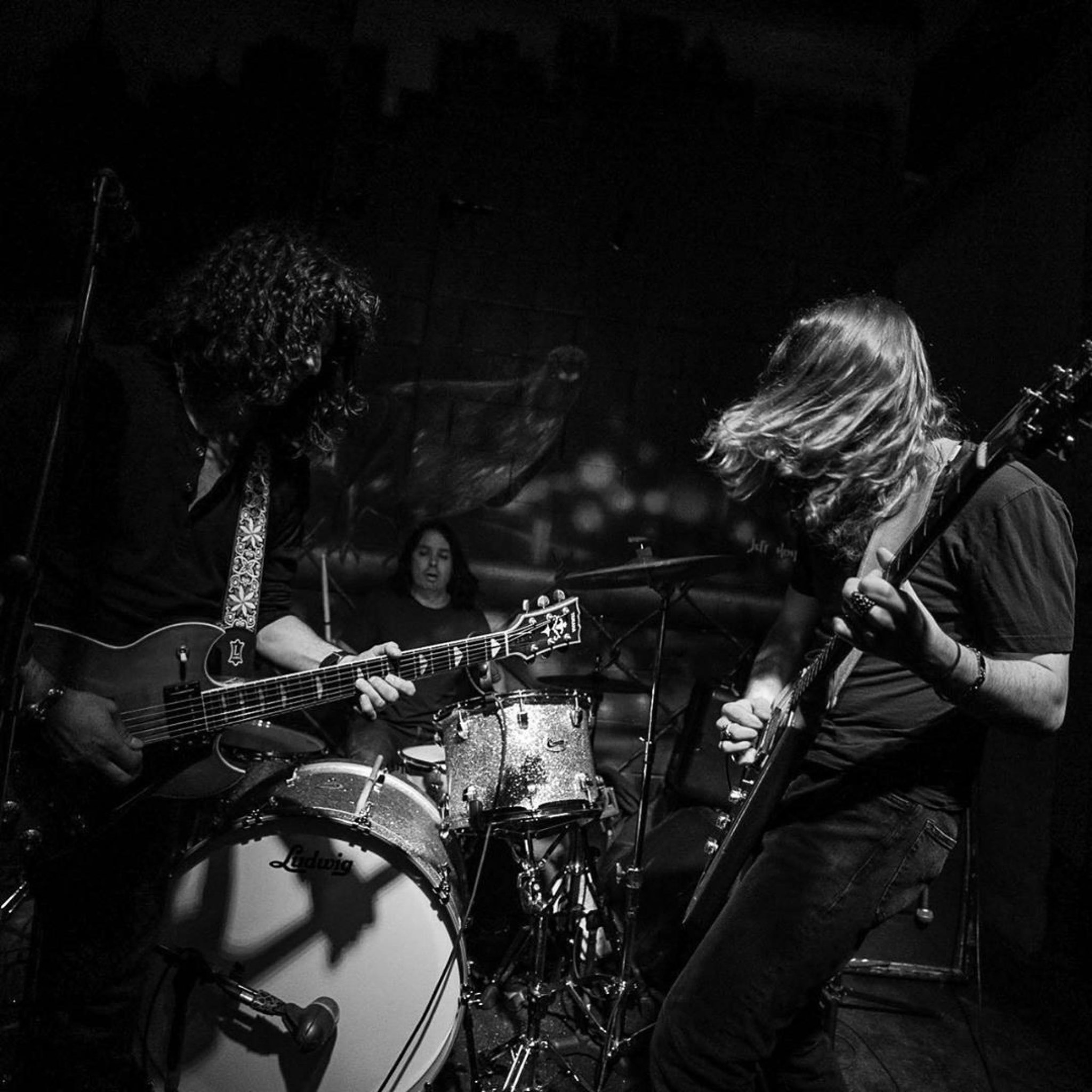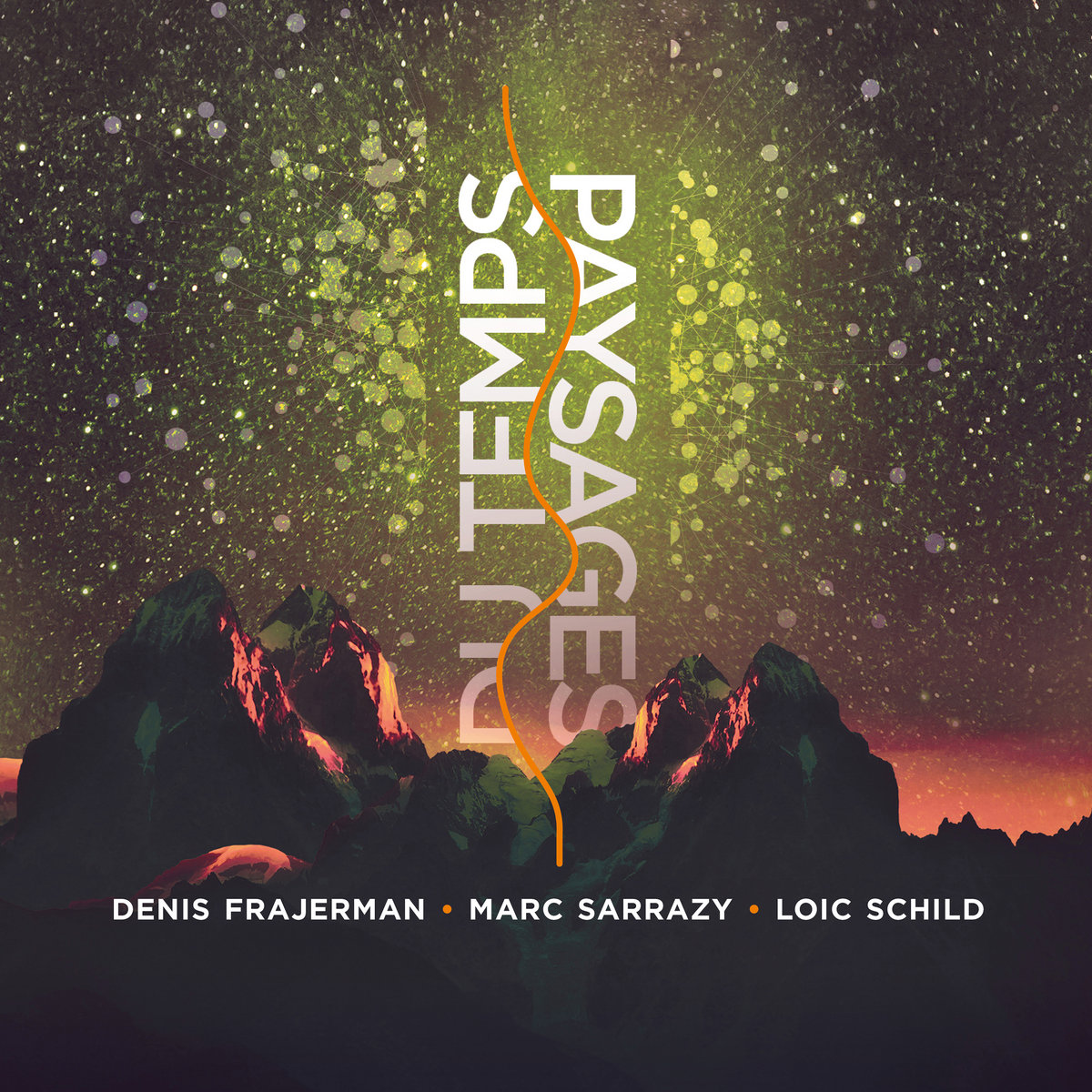Furio Chirico’s The Trip | Interview | “Equinox”
The British-Italian band The Trip, originally formed in London in 1966. By the time of the release of ‘Atlantide’ in 1972, the band defined its musicality as progressive rock.
The original lineup of Joe Vescovi, Arvid “Wegg” Andersen, and Furio Chirico made some truly impressive music together. The legacy of The trip continues 50+ years after the release of the masterpiece ‘Atlantide,’ with the birth of Furio Chirico’s The Trip, a new line-up led by Furio Chirico (the only remaining member of the historic trio) following the original breakthrough of 1972, featuring, alongside drummer Furio Chirico, brilliant musicians such as Paolo “Silver” Silvestri (Hammond, synthesizers and vocals), Giuseppe “Gius” Lanari (lead vocals and bass) and Marco Rostagno (guitars and vocals).
‘Equinox’ is Furio Chirico’s The Trip’s new concept album, with the primary goal of opening new paths, bringing on musical research and experimentation, without any nostalgic approach but ingrained in the most genuine progressive rock sound that the original trio conceived.
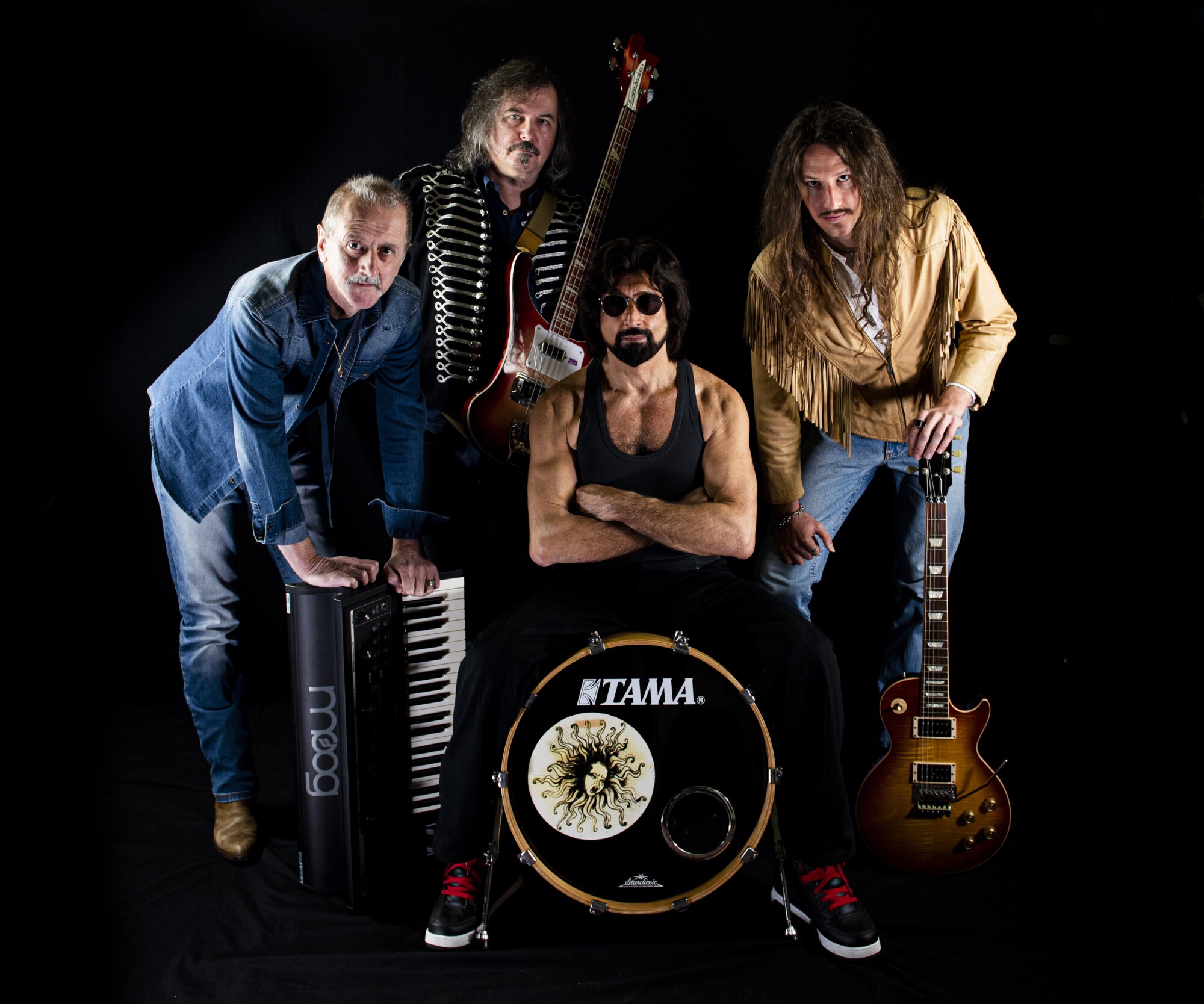
“Music has the wonderful power to defeat those who crave an uncultured and unnatural world”
It’s fantastic to have you once again. How come that you decided to reactivate the old project, The Trip? Who are members of the band?
Furio Chirico: It’s a great pleasure to be back to your worldwide readers, of course with The Trip and my band Furio Chirico’s The Trip! Joe, Wegg, and I reunited, The Trip in 2010, and we played some important shows in Italy as well as a tour in Japan. Things appeared to be “back to the good old times,” but The Trip’s clock stopped in 2014 when Wegg and later Joe passed away… We created ‘Atlantide’ together, and this album is a “monolith” in my life. To avoid The Trip becoming only a “legacy” it was necessary to revive and restart the heart of the band on the occasion of the 50th anniversary of the release of ‘Atlantide’ in 1972, and to re-birth with a new lineup. And I thought the only one who could prove it was me, the only survivor in the historical trio, Vescovi-Andersen-Chirico. You know, Arvid “Wegg” Andersen, the original creator of The Trip’s forerunner, as well as Ritchie Blackmore, the founder and poet, and Joe Vescovi, the leader and composer from the early age of the band, are both dead after our reunion, and The Trip virtually ceased to exist after 2014… How can the band be called “The Trip” after losing these two fundamental pillars? You can’t go wrong, especially if you pay homage to two great musicians. I thought and thought… Then I decided to add my name as one of the members of the progressive trio and continue my “trip,” to re-generate it from the point where it all ended. Furio Chirico’s The Trip was born, in 2019. Together with brilliant musicians Paolo “Silver” Silvestri (Hammond, keys), Giuseppe “Gius” Lanari (lead vocal, bass), and Marco Rostagno (guitar). After an announcement that we would start walking again as Furio Chirico’s The Trip, many old fans and people gave us tons of feedback. I was really happy to know that so many fans of The Trip were waiting for the return of The Trip! Oh, we were also featured on the cover of Euro-Rock Press, the most prestigious specialized music magazine in Japan!
You recently released a very complex concept album with The Trip. What can you tell us about the material that appears on ‘Equinox’?
Furio Chirico: Before I talk about ‘Equinox,’ let’s start from the meeting with the awesome folks who created this album together. In the spring of 2019, two musicians came to Turin to visit me: a young Marco Rostagno and a not-so-young Giuseppe “Gius” Lanari. They told me their idea to revive the 1972 ‘Atlantide’ and told me that they knew the best keyboardist for the job, which was Paolo “Silver” Silvestri, so I decided to meet them all together in my studio. Their enthusiasm was palpable. However, I was deeply aware that The Trip could not be restarted with ordinary resolution. I said “If you guys have talent for songwriting and outstanding ideas, and if those fit “The Trip” then I would think about it”. Gius right away sent me some songs he had written, so I decided to give it a shot. When I listened to them, I immediately realized that he has a fantastic writing talent as well as an incredible vocal skill. Prog music often requires that the external composition structure of the instrumental part must be solid, clear, and full of inspiration, as well as the lateral (inner) vocal part needs to be full of color, rich in quotes, and filled with beautiful melodic lines that are splendidly expressive. All the vocal songs that Gius brought were fully inspired, had those characteristics of real prog, and had a wonderful degree of perfection as “songs”. Moreover, his vocal timbre was very close to Wegg. And Gius is a bass player! I was drawn to the idea of having a member (bass player and vocalist) just like Wegg in the same line-up. We all gathered again in my studio to “put into practice” right away! Before our rehearsal, I instructed them to study all of the tracks from ‘Atlantide’ as well as some from ‘Caronte’. From the first time Silver brought in a pile of keyboards (including a Hammond), and every member in the rehearsals validated the performance of the performance and the performance technique for the suite numerous times. It was a thrilling and intense rehearsal since all three of them had the guts to pump out adrenaline to the peak by playing live ‘Atlantide’ with my drums, which they had only heard on the record. It went on without hesitation. Their ability to interpret the songs was outstanding. The final decision was Silver’s songwriting ability. He had a knack for writing suites without overly structuring the songs, just like Joe. I made up my mind. It’s been a year since I met the three of them, and for two years since I made the decision, we have devoted ourselves to composing, writing lyrics, and recording. While repeating trials and errors, writing the lyrics, arranging the music together, and finishing each song one by one, our teamwork was amazing, and by the time the album was finished, we were the ones. It consisted of a complete band. Most of the songs on ‘Equinox’ are written by Gius and Silver, and one solid rock song with beautiful melodies written by Marco, the youngest member of the band (who was 25 years old at the time). About the songwriting, it would be better to talk directly to them.
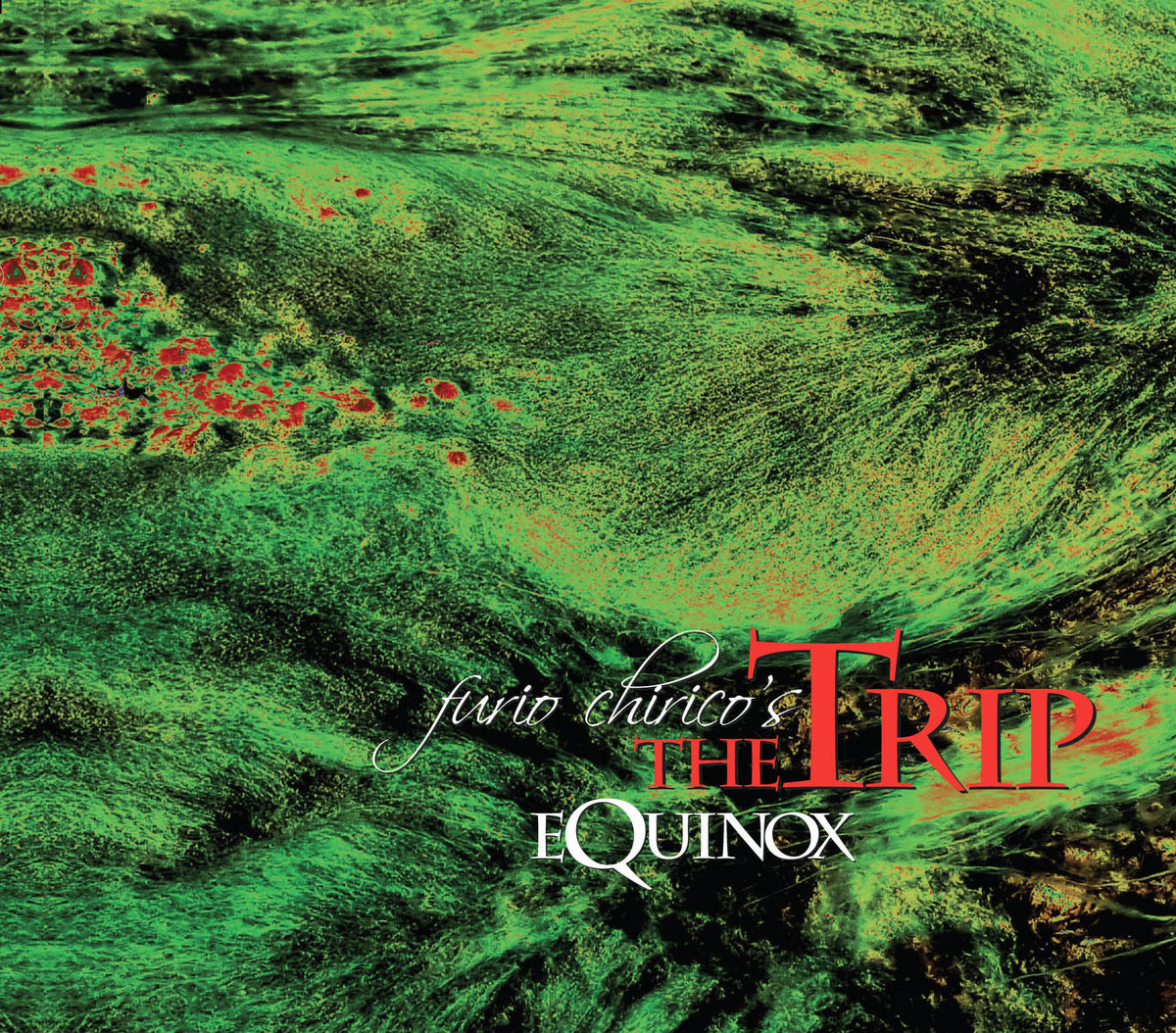
Giuseppe Gius Lanari: I worked on two subjects (but Silver wrote the lyrics for one of the songs). First, songs about serious concerns of our time: ecology, sociocultural difficulties, but with the hope of a happy ending, supporting one another. Second, Joe Vescovi’s and Wegg Andersen’s artistic portraits, between truth, poetry, and romance. I’m very proud of what I’ve achieved, especially in ‘The Reason Inside Playing’ (whose acronym is T.R.I.P.) because I managed to include another hero of mine, the band’s first lead guitarist, Ritchie Blackmore, in the lyrics. I adopted wordplay to refer to him in the song.
Paolo Silver Silvestri: Personally, I didn’t listen to music of any kind throughout the recording period, but also beforehand, while developing the ideas and then bringing to the pentagram writings of the songs I composed for ‘Equinox,’ everything to maintain a certain originality for the songs. However, I took into account Joe Vescovi’s way of playing in the Trip period. ‘A Suite For Everyone’ is the most complex song that I have ever composed; the lyrics were also written by me. It is a song in which the elegance of Prog music comes out as I understand it. ‘I’m Fury’ (dedicated to Furio) was a bit of a challenge. I created it with the Wurlitzer electric piano, and once settled, I played it with my Hammond C3, and with the piano I kept the left-hand part. In the end, it has become an “easy exercise”. ‘Remember Joe’ (dedicated to Vescovi) is centered on playing chords with the church organ, it may remind of Bach (my favorite); the vocal lines were composed by Gius Lanari, and I only transcribed his idea on the pentagram. In ‘Story Of A Friend’ (piano piece), I inserted ninth chords and other extensions that sounded a bit jazzy…
Marco Rostagno: Starting from the reunion of The Trip (Vescovi-Andersen-Chirico) in 2010, the idea of including the guitar had already been consolidated and has become a certainty with the new compositions starting in 2019, thanks to the current lineup of Chirico, Silvestri, Lanari, and me. ‘Summer Solstice,’ an instrumental guitar piece I composed, brought a breath of fresh air to the project, with a rock matrix but at the same time progressive, experimental, and alternative. It is a story told by the voice of the lead guitar, imagining the sun that, in its maximum splendor, defeats the darkest darkness, generating a true rebirth. Within the song, there are different modulations that allow the listener to perceive movement and end up with a real evolution in a fluid and gritty way. Furthermore, I composed the guitar parts for Silvestri and Lanari’s songs, trying to provide a good rhythmic contribution while also visualizing the solo parts that I would have liked to hear as a listener and bringing them back to the instrument afterward. One of many examples is the solo section in ‘Story of a Friend,’ which allows for a lot of expression through the use of whammy bar, vibrato, bending, and slide.
Where was the material recorded? Tell us about the recording process?
Furio Chirico: All of the songs are brand new originals, and I am in charge of the artistic direction and production for the album’s arrangements and instructions. Needless to say, as I always do for any songs I am involved in, as the drummer, I composed all of the drum parts from scratch, listening to the rough demo of each composition, listening to its basic melody line, inflating the image of the song in its “body and soul,” and then its rhythm came out naturally, precisely and technically but emotionally, just like… I let the drums sing. We recorded ‘Equinox’ at Ænima Recordings, the studio owned by Mattia Garimanno; the awesome sound engineer shaped every sound we actually played. With Mattia, I worked for Arti & Mestieri as well. ‘Equinox’ was released at the perfect time to commemorate the 50th anniversary of ‘Atlantide,’ out in Japan via major label King Records in Japan and in Italy via ZdB. Both editions feature our debut album ‘Equinox’ and the DVD video of our latest live-show footage at “Salone del Libro” in Turin, and the Japanese edition includes an additional special bonus CD featuring an unreleased live sound source of The Trip performed in 1973 in Foggia, Italy. That material was recorded during our performance when the recording environment was less than ideal, back in the day, so maybe it’s a bit difficult to listen to it with all of the noise and distortion… However, it has historical value to listen to as a historical sound source, as there is no other “actual live sound” performed by the original trio remaining. The ‘Live in Foggia’ CD features various songs from ‘Time of Change’ to ‘Rhapsody’ and ‘Atlantide’ we played back then. The ‘Equinox’ CD features a total of 9 songs, 3 of which are instrumental and 6 of which are sung. The DVD features the video footage of our band’s debut performance held in Turin at the end of May 2022 where we performed several songs from ‘Equinox,’ some songs from ‘Atlantide,’ and finally ‘Caronte I’ from ‘Caronte’. I want everyone to see what kind of live show my The Trip does. The sound was mastered by ZdB by remarkable mastering engineers in their amazing studio. And finally, the LP ‘Equinox’ is out now! The vinyl features all tracks on special vinyl analog remastered with inserted vinyl graphic liners on fine paper.
What kind of audio gear did you use?
Furio Chirico:
Tama Starclassic Bubinga (10” – 12” – 14” – 16” – 18” shells)
Tama Furio Chirico custom snare drum
MEINL Byzance and Classics series cymbals
MEINL cowbell
Tama Iron Cobra HP900 double pedal
(*Back then I used Meinl, now I play UFiP)
Giuseppe Gius Lanari:
Rickenbacker 4003 bass
Fender Jazz bass
SasAmp bass equalizer
BassBalls by Electoarmonix.
Paolo Silver Silvestri:
Hammond organ C3 w/Leslie 122
Sinth Korg M1
Moog Korg MS10
Yamaha piano P45
Korg 01w/fd
Arturia & Native Instruments plugins
Marco Rostagno:
Gibson Les Paul standard Axcess Custom Shop 2010
Fender Stratocaster American Standard 1988
Squier Stratocaster ’62 Japan Vintage 1983
Marshall JCM 2000 Dual Super Lead 50
Archimede Scream 18
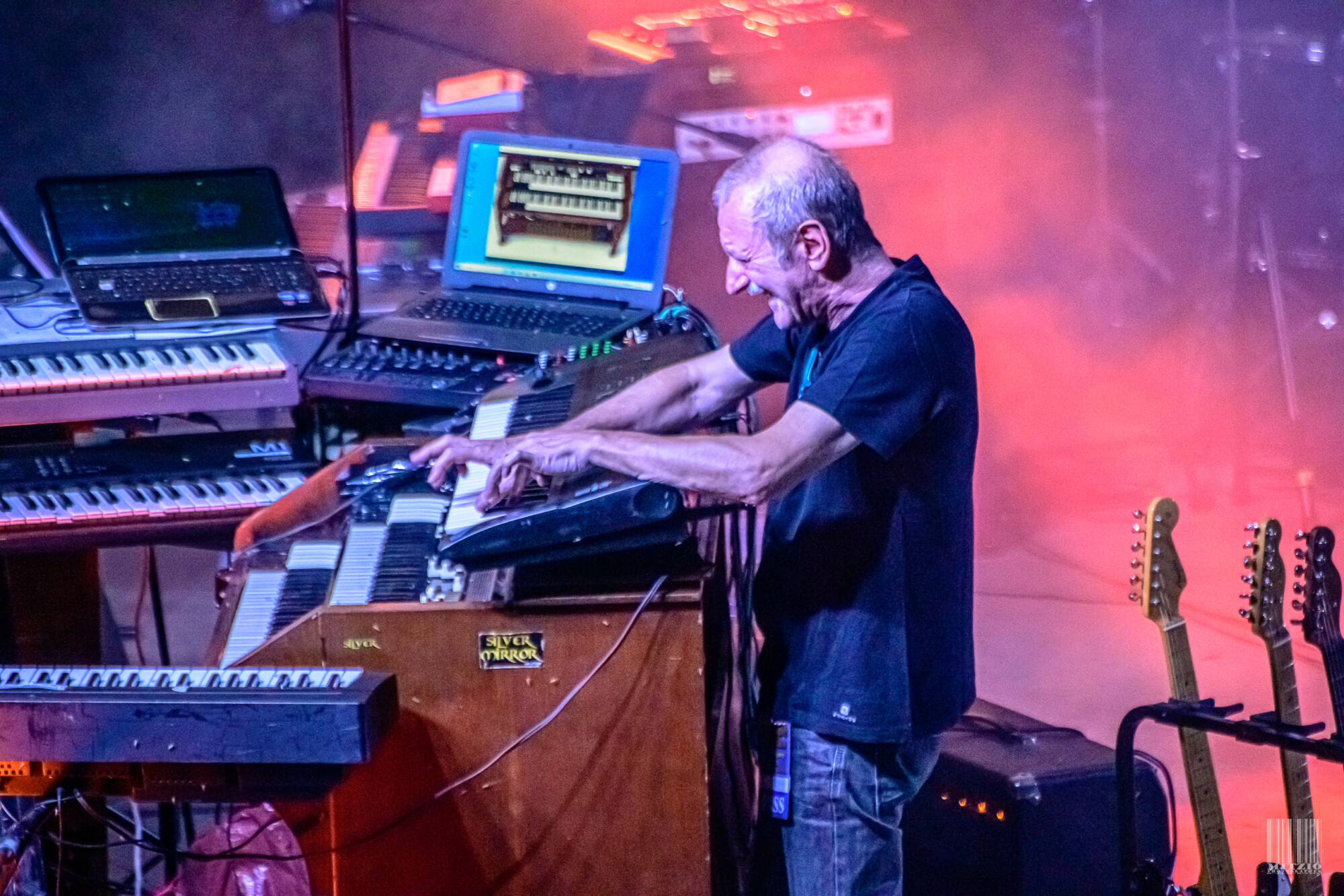
Can you elaborate a bit more on the concept behind the album?
Furio Chirico: In astronomical terms, ‘Equinox’ refers to the moment when the plane of Earth’s equator passes through the geometric center of the Sun, but our ‘Equinox’ originates from a Latin mythological language, “equal day and night” derived from the underlying philosophy is that it expresses the actual state of the world now, where “darkness” and “light” exist in equal proportions. Furio Chirico’s The Trip is a formation born from The Trip, with rebirth and its spiritual path.
What was it like working with Franco Vassia?
Furio Chirico: With Franco Vassia, I share tons of things, we have a great “working” relationship where we collaborate together, and we have an “ancient” friendship. He’s my lifetime friend, I can say. For ‘Equinox,’ Franco had an important role both in writing the liner notes of the ‘Equinox’ recording project in an exemplary way, both regarding the music and the lyrics, capturing very well the intentions of the composers and the band in his sensitive and profound way, but he also suggested adding a small but important variation musically at the end of the song ‘Remember Joe,’ and we were very pleased to insert it. And besides, the album cover artwork is a photo taken by Franco; we use it in its original form, with no modification at all.
Are you planning to work on some follow-up material?
Furio Chirico: Actually, I intend to re-propose ‘Atlantide’ with my band’s current lineup, as a quartet with the inclusion of a guitar; it will never be a cover but a new version where the guitar arrangements and the current lineup’s musical sensitivity will contribute to make the work “one of a kind,” of course its traditional and original structure of compositions will be respected, and there will also be one big surprise: rare and historic unpublished video footage of ‘Atlantide’ from 1972.
The band was originally formed in London in 1966. Would you like to elaborate about its beginnings?
Furio Chirico: The beginning of The Trip goes back long before 1972. When the band came to Italy in the 1960s, Ritchie Blackmore was part of the line-up. They often visited Turin and played in clubs. One of those clubs was run by my uncle (one of the first promoters/DJs in Italy), Alfonsino Chirico. Dancing live was mainstream, and it was the beginning of what is now called disco, where first-class musicians of various genres performed. At that time, I was very young, but I was already active as a drummer in professional bands such as I Ragazzi del Sole, and I was frequently in and out of clubs, so I stayed close to the live performances of bands from all over the world. Among them was The Trip.
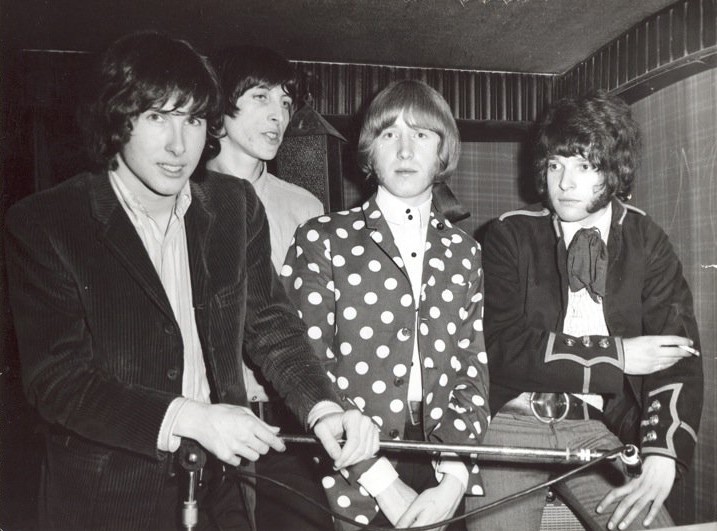
At that time, the band was still composing, and after Ritchie left the band for the purpose of forming Deep Purple and went to Germany, The Trip was formed by the addition of Joe Vescovi, an extraordinary musician who had exceptional keyboard and composition talent. And the band released two albums, as you know, the psychedelic ‘The Trip’ and the rock/blues ‘Caronte’. But in early 1972, Joe contacted me with his long-time ambition; he said to me, “I want to play progressive. Your drums are essential for that.” I was invited to be part of it. Joe and the band’s founder, Wegg Andersen, agreed to reform The Trip. Wegg was a bass player and a singer who played alongside famous musicians such as Jimmy Page and Ritchie Blackmore in the early ’60s and was, so to speak, a driving force behind Swinging London. It was already decided between Joe and Wegg that I would be the drummer! The two of them were determined to go on as The Trip.
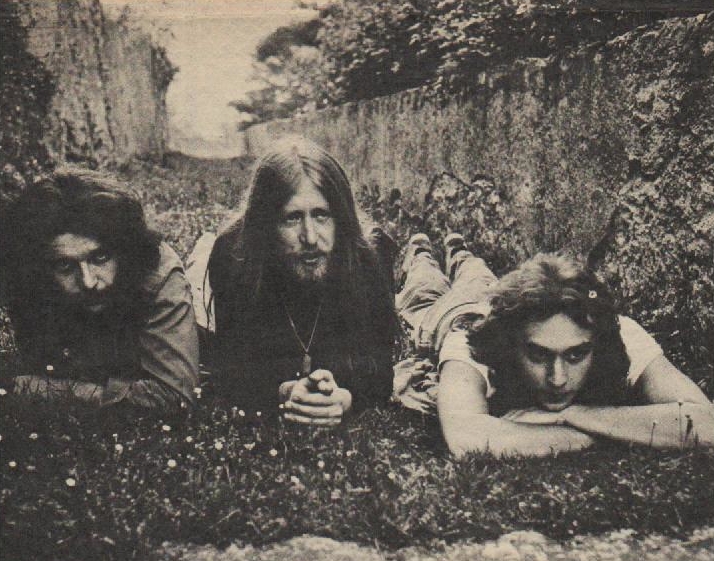
“I was stunned to find an actual war tank with the word TRIP painted in white on its body”
How do you see the vision of the band back then and how do you see it years later now, as a much more experienced musician?
Furio Chirico: In the 1970s, the concert situation was frenetic and complicated; it was a time when anyone could do what they wanted. Public volunteers, those involved in college student activism, had successfully organized a national network of venues, in which many, especially rock, progressive, and jazz bands played. Due to the unique situation in Italy compared to other countries, nothing worked properly, but the general audience’s participation was always high and oriented in a positive direction. In the 1970s, when The Trip were based in Italy, the most unbelievable-scale production was the outdoor festival in 1972 at Villa Pamphili (the Italian first pop festival, The Trip’s debut performance as a trio). In the middle of the venue fully packed with 140,000 people (right in front of the stage), I was stunned to find an actual war tank with the word TRIP painted in white on its body. Enthusiastic audiences climbed on top of it, and there was enormous attention. In our early trio days, in addition to rehearsals and performances, the three of us were always discussing, chatting, and sharing time on all kinds of things. Wegg was obsessed with philosophy, politics (police, city-state, government), and “revolution” in every era, and with Wegg I used to exchange ideas such as the way things are, world affairs, social issues, and views on life. Joe and I, above all, had the same musical vision, so we shared everything that depends on music—the emotional, the historical, and the technical sides. Wegg also had a very “human” side. He’s a good cook, and the villa where we stayed in, while we were producing ‘Atlantide,’ had a large garden where vegetables of all kinds grew, and Wegg served a different healthy dinner every night. Joe had an amazing memory and could remember 99% of his past life and make occasional jokes about himself and all the people he collaborated with and shared time with, from the general to the cultural activities. And so on, I could remember every single action. During concerts, our fans and friends joined us, and we had a lot of fun talking together until the morning. I used to have a lot of fun with Joe when he was still alive, especially on tour. The Trip’s music may sound simpler than jazz-rock or intense fusion production, on the surface, but like in ‘Time of Change’ (1973), the structure, harmony, melody, and rhythm are complicated and sophisticated. My experience with Joe and Wegg has challenged and inspired my own subsequent music production, as evidenced by the numerous albums released since then.
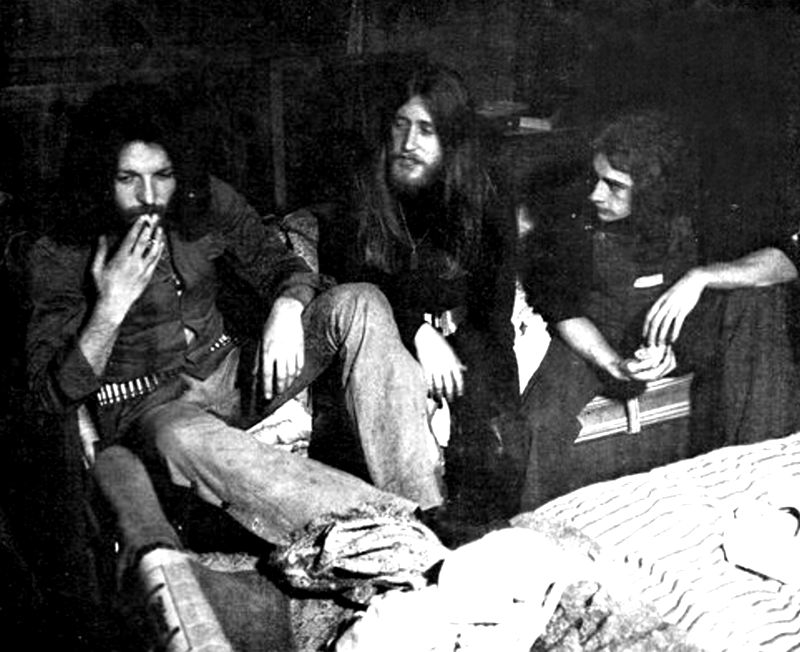
What was it like to work on ‘Atlantide’? What are some of your favourite memories from the studio and from the material you wrote and recorded?
Furio Chirico: Joe explained to me the importance of following the “prog” path. His image of “that prog” is a kind of music that has undergone a further transformation by combining rock with symphonic, jazz, folk, soul…So the big picture emerged. It was ‘Atlantide’. Joe started to work on the whole composition first, and he left it to me, so I understood that I would interpret all the drum parts myself as letting my instincts; it’s just something like, I listen to a song, develop an image in my mind, and let my drums “sing” along with the melody. In fact, ‘Distruzione’ is a drum solo, but deep down it goes through a process that could be described as an impressionist experience, and I played it if I could think of fear, frenzy, destruction, and the silence after a catastrophe. Based on Wegg’s strong desire, this song should not have any harmony or perfecting; more than anything, it should be expressed in an instant. All of the songs on the album were written by Joe, with Wegg writing the lyrics. The three of us completed it while staying for a long time at Villa Rossi in Cinzano sul Neva, Liguria. The collaboration between Joe and Wegg was so perfect in every single way that I saw it by their side, and I think it was just perfect like no other in the world.
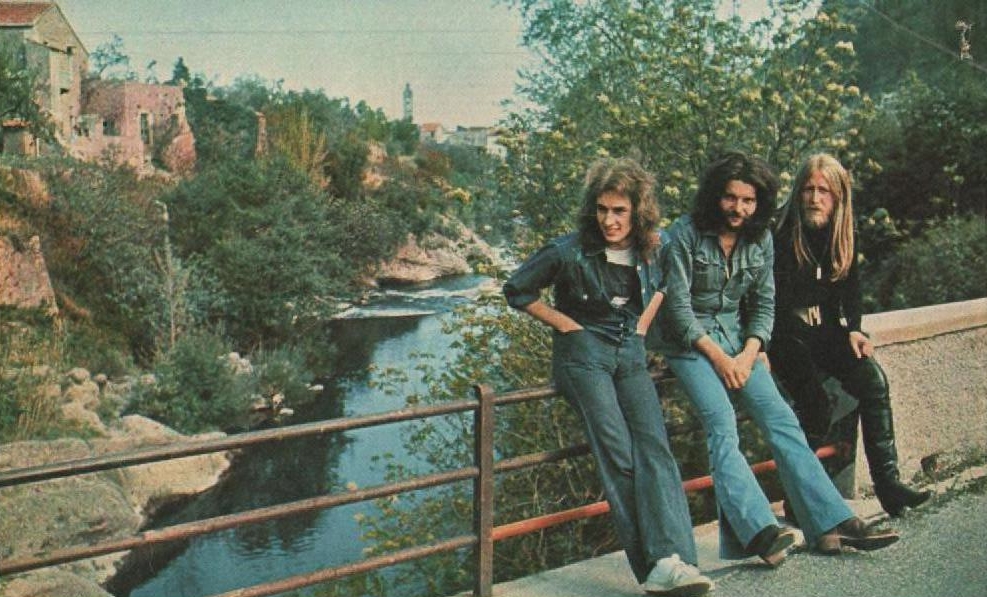
Would you be able to draw any parallels between ‘Atlantide’ and ‘Equinox’?
Furio Chirico: Let’s see, in ‘Atlantide,’ we talked about “humans and their powers living in a destroyed world at the time, hoping for a positive rebirth and a better world. Compared to ‘Atlantide,’ ‘Equinox’ is also a metaphor for the world in which mankind lives now, but it talks about “a modern society in which the earth, humans, and all kinds of beings are always extremely divided into two, with no middle ground.”
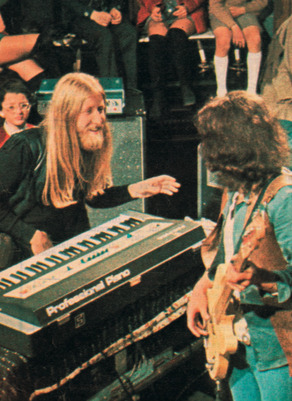
The songs’ lyrics are all about a world that is evenly divided into two parts. I attempted to return to the realm of “poetry” as seen in the trio’s two albums, the musicality that seamlessly incorporates it, and the various “destructions” of the melody/harmonics/rhythmics of the music part. In other words, after further research and experimentation on the original musical fabric of “The Trip,” while opening up a new path, ‘Equinox’ has come to fruition, aiming to be an infinitely pure and extremely authentic “prog”!
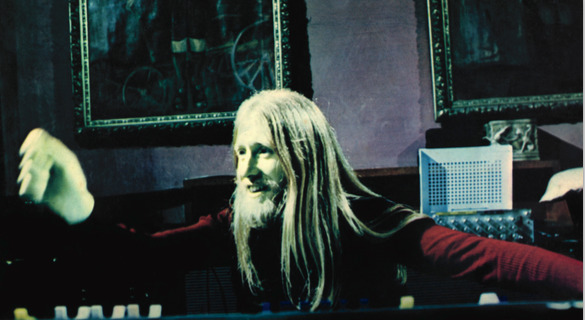
It seems that you’re not very interested in doing an “old thing”? The new albums sound very fresh, although The Trip music was never something that would become “old”. Do you know what I mean…
Furio Chirico: I understand very well what you mean… I often listen to historic bands and others, and I find their repetitive structures and colors (perhaps due to a lack of courage)… For my philosophy of life as well as in music, curiosity is all you need. I like to study, experience, and find different emotions. With Joe Vescovi, we always talked about it like “Let’s not stop what we are exploring; let’s try different stories”. After all, this is the real prog, the rock soul open to the musical universe. For me, ‘Equinox’ means all of this.
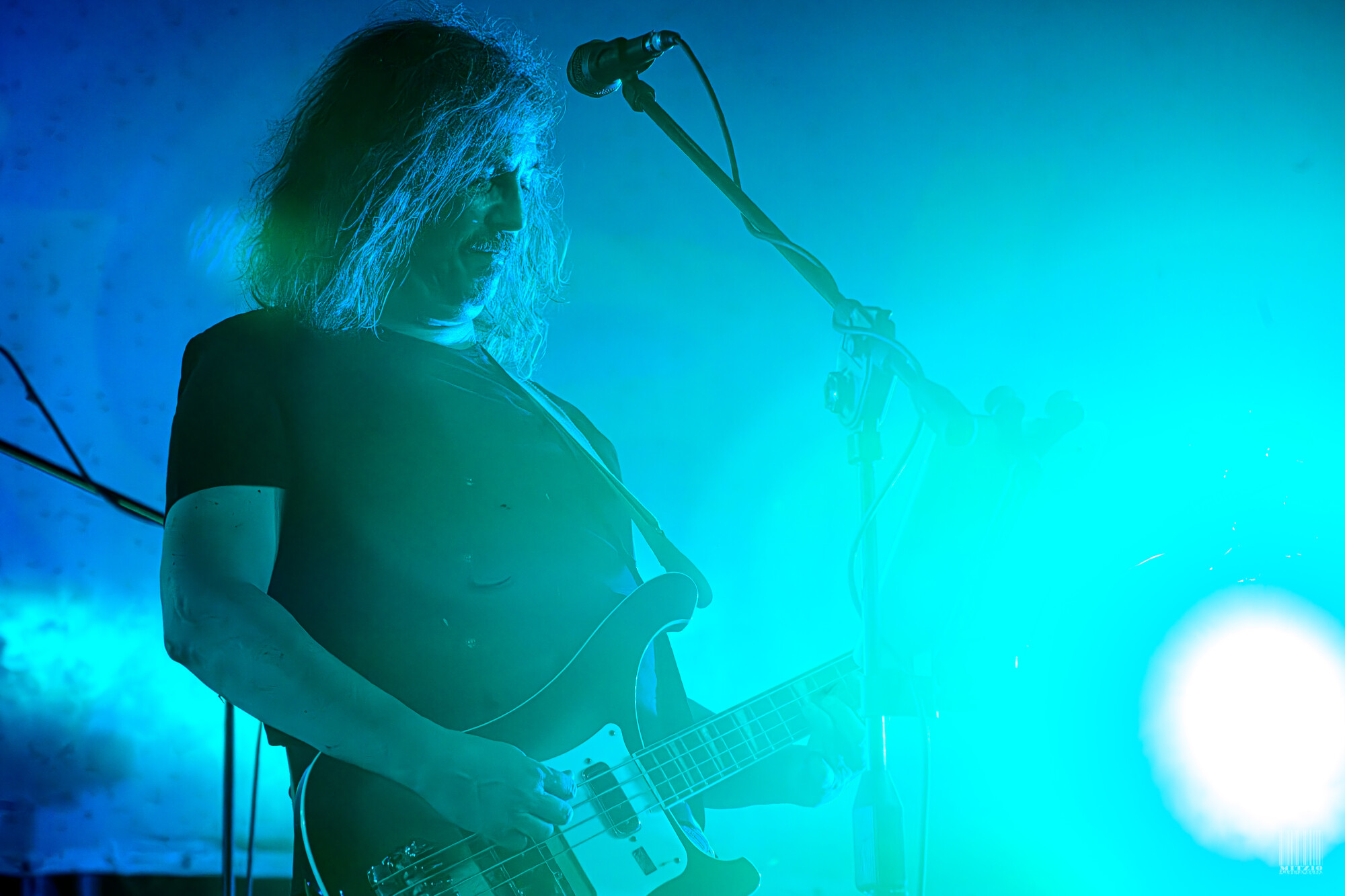
How do you usually approach music making?
Furio Chirico: You see, although I continue to study, research and discover new things on drums, I am also always interested in many things such as nature, I can consider myself “vegetarian” even if this word does not exist but it is very similar to “animalist” but aimed at the plant world, I have always been interested in philosophy, art in all its forms, archeology and politics in the sense that the Greeks gave it, the POLIS. All these things give me energy, sensitivity, and make me want to transmit them in the music I play, like states of mind that give me emotions.
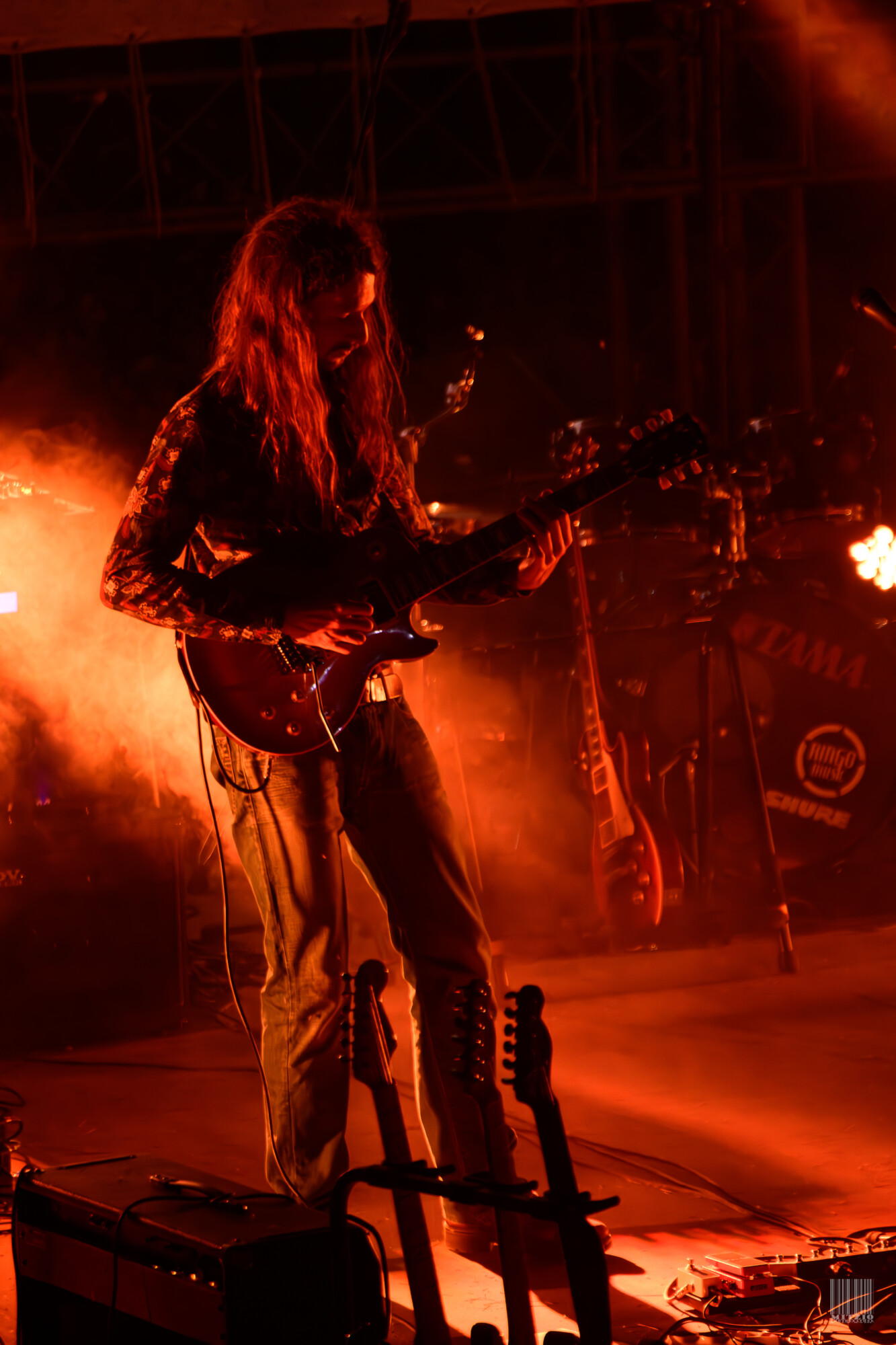
What are some future plans for you?
Furio Chirico: I have many… mainly regarding Furio Chirico’s The Trip with possible tours, hopefully in Europe, and, as I mentioned before, the production of our new version of ‘Atlantide’. With Arti & Mestieri, we will be the protagonists of the band’s fiftieth anniversary in 2024, with the development of a new album where practically all of the band’s composers throughout its long career will be present on a compositional level. I also hope to be able to create some solo projects. Additionally, as you know, I direct my music academy, Accademia Musica Moderna in Turin, Italy, which is showing steady growth despite these difficult times.
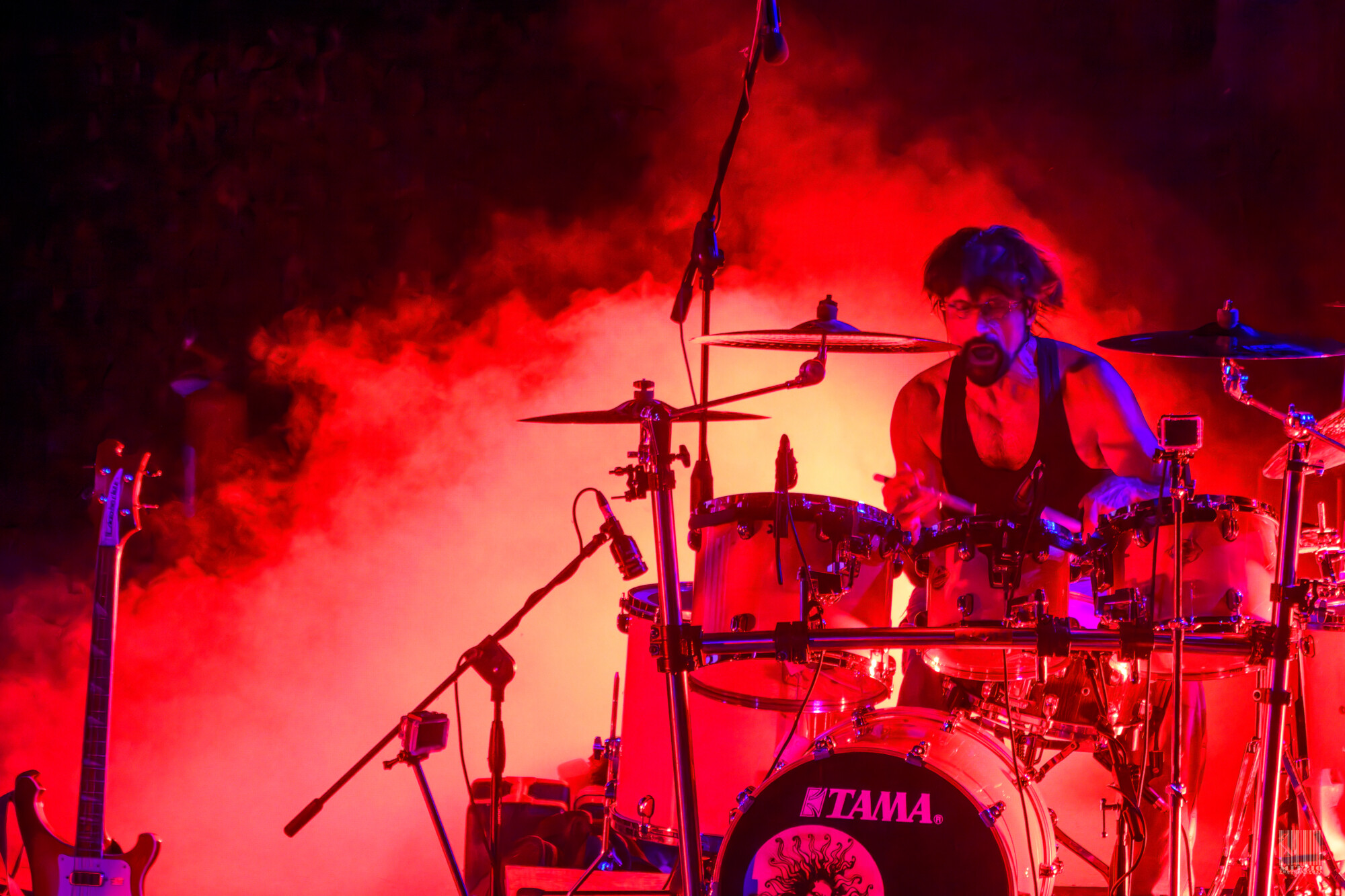
What are some of the most important players that influenced your own style and what in particular did they employ in their playing that you liked?
Furio Chirico: That’s the question that is always difficult to answer. I may say… everyone and no one. It’s not a rhetorical answer, but it’s true. I can listen to any type of music and try to play it, and ideas come as a result. For instance, listening to the piano solo by Keith Jarret and discovering some rhythms on the drums to create, sometimes listening to a song by The Beatles, or feeling the energy and vigor of Buddy Rich with the great orchestras, the genius and irony of Frank Zappa, after all, everyone and no one.
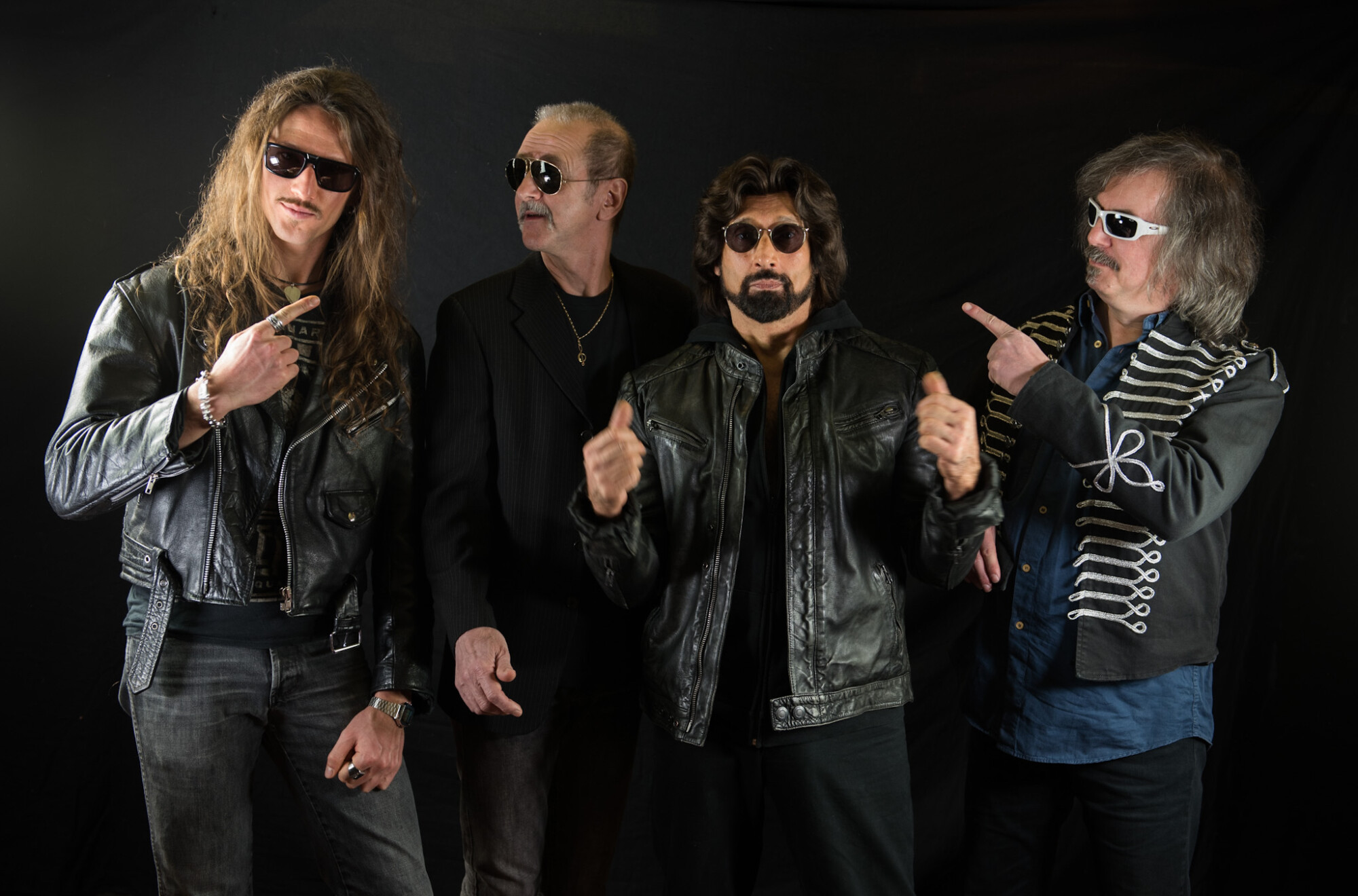
Thank you. Last word is yours.
Furio Chirico: The DNA of Furio Chirico’s The Truo fully functions with the love and support of listeners. Songwriting and concerts are the two components of this project, they constitute the cells of our body and create a synergistic effect with all the fans who want us to play, which is why the band is alive and can grow. We want to hear their feedback. Because music has the wonderful power to defeat those who crave an uncultured and unnatural world. The music of Furio Chirico’s The Trip has it.
Klemen Breznikar
Vinyl link!
Japanese Edition (2CD+1DVD) link!
Universal Edition (1CD+1DVD) link!
Headline photo: Furio Chirico’s The Trip | Photo by Dave Turbino
Furio Chirico’s The Trip Official Website / Facebook / Instagram / Bandcamp / YouTube
Arti & Mestieri Official Website / Facebook / Instagram / YouTube
Arti & Mestieri | Furio Chirico | Interview

